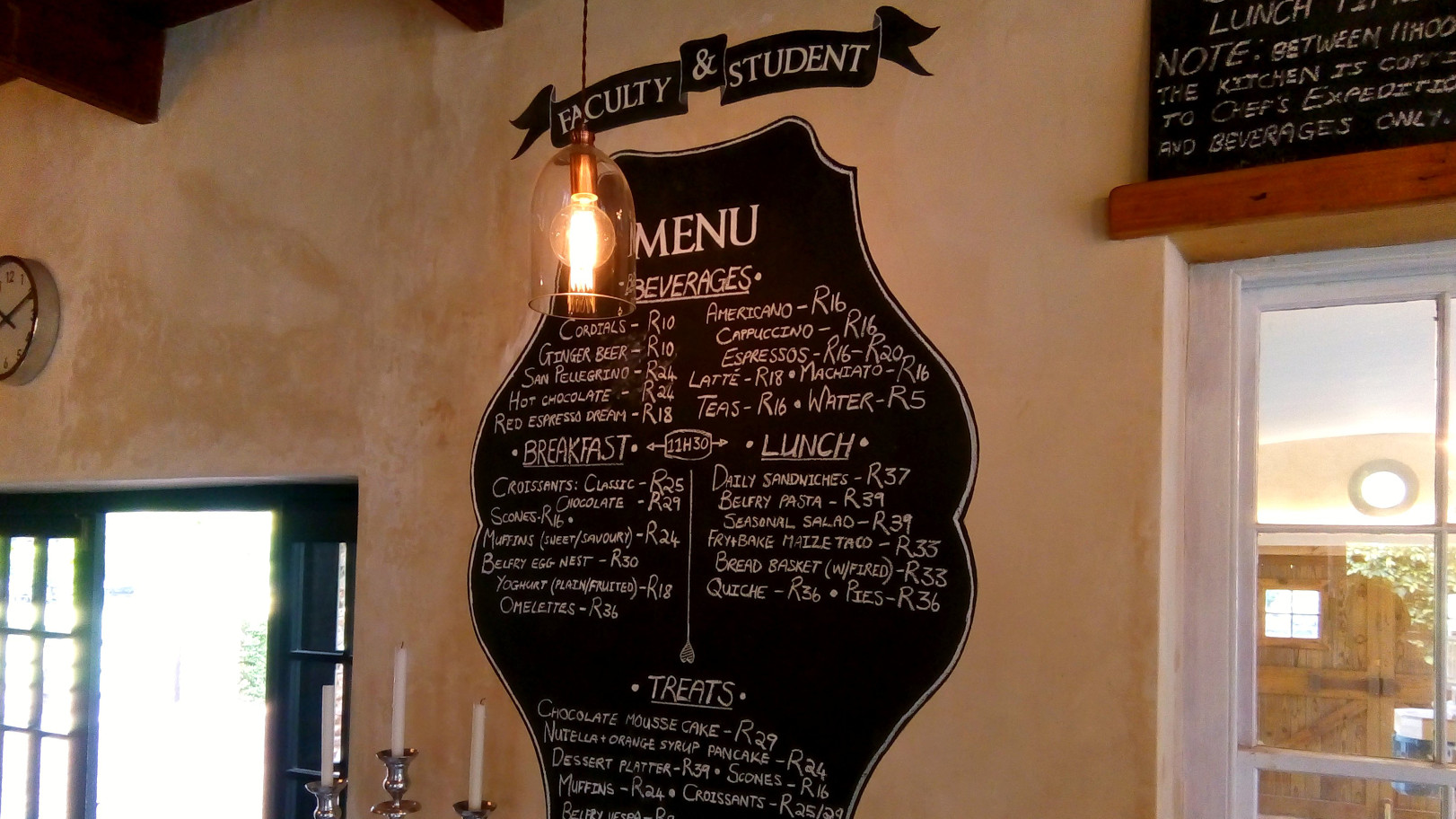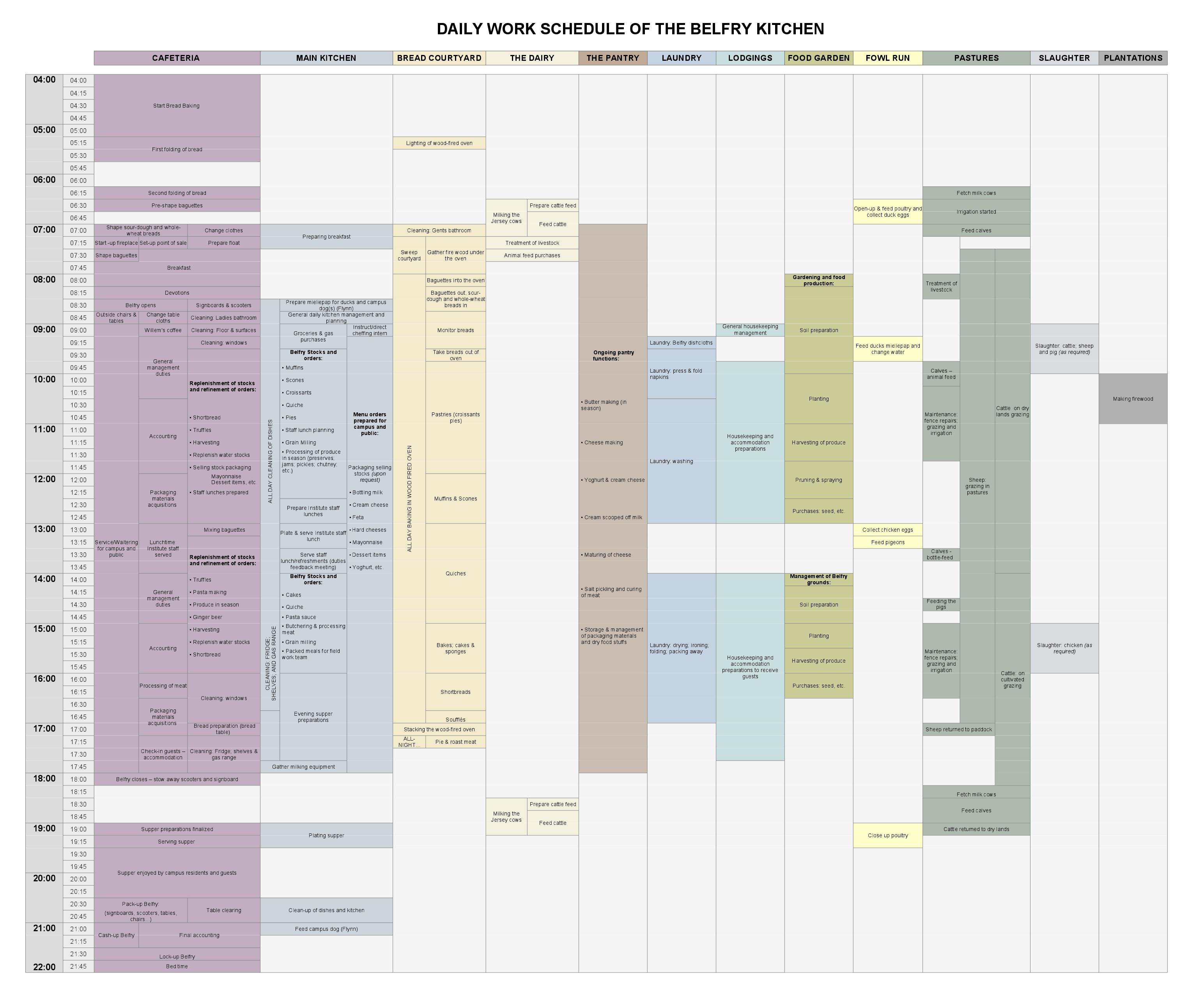How DO we do it?
Visitors and guests often remark that The Belfry Kitchen's menu and groceries prices are comically low...
With fresh, full cream milk selling at R8.00 per liter, menu items ranging between R10.00 - R46.00 and a 3-course Sunday lunch at a mere R95.00 (campus & Twee Riviere) and R125.00 (visitors), clearly there is something afoot here. Notable also, is that menu prices have only increased ONCE since the campus cafeteria first opened in February 2011 - yet are not subsidized in any way. Instead, the Belfry routinely meets all its own expenditures, dispenses no less than two thousand free meals and beverages every month, pays rent and salaries, carries its food production costs, maintains its guest house facilities and all the normal overheads and expenditures that any similar establishment would. So, how is this possible?
The centerpiece of this inflation-free marvel is the own production of virtually all ingredients and foodstuffs through simple, family-based, homesteading practices. As a means of food production, this model had remained pretty common until as recently as the late 1800's or early 1900's. At the Belfry, this time-honoured practice unites the efforts of a few enterprising siblings, spouses and companions - seven persons in all. As a consequence, fresh meat (for instance) is produced at less than R10.00/kg, milk at R2.45/liter, flour at about R3.00/kg and matured cheese at a mere R41.00/kg. Common sense also prevails, along with a willingness to yield to the seasons and the times: Therefore, the kitchen's attentions and efforts are inspired by whatever is naturally prospering and bountiful at any particular time. This only makes sense - and beautiful cooking - catching everything at its natural peak of viability, flavour and goodness! On the whole, both the daily hours and the list of chores are also long and distinctly varied. Also, each week is punctuated by a shared day of rest, to close six days' of hearty labour.
From Sundays to Fridays, the day starts with baking preparations at 04h00 and a crackling fire in the outdoor oven. Next along, are milk cows to herd and milk, as well as poultry and bottle-fed livestock to tend to, while breakfast is being readied for the resident families and staff. The Belfry's kitchen is also in every sense the campus' universal kitchen, since it provides all the meals for all the dwellings and residents on the grounds. An hour before opening the Belfry's doors at 08h30, breakfast is taken communally around a table inside the cafeteria, followed by devotions. Thereafter, the day is properly underway... At a glance, the average day at the Belfry Kitchen looks as follows:
And here is a picture of the simple, campus menu which serves faculty, students and academic support staff, as well as residents of Twee Riviere. Visitors who happen to "stumble upon" the cafeteria along their travels are also routinely served from the very same menu...

The poet John Donne wrote:
"No man is an island entire of itself; every man is a piece of the continent, a part of the main;"
And since this is indeed so, one might add that the Belfry's homesteading food model is not so much aimed at independence, as at "inter-dependence": Clearly, not everything can be grown at all times - nor in all climates - and there is probably little reason for making that one's aim. Importantly also, good and meaningful relationships develop around the bartering of foodstuffs. And anyhow, a few items are bound to perpetually remain out of reach - in the Belfry's case, coffee, tea, sugar, certain spices, rice and so on. Since cash inevitably accumulates when expenses are so few, these tricky-to-grow-items at least permit the Belfry staff some opportunity to hone their rusty shopping skills!














